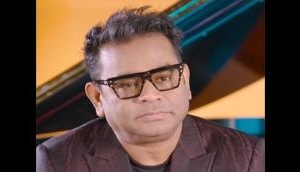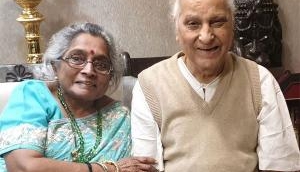Actors must say no to trash: Tannishtha Chatterjee rejects 100cr club at IFFI 2016

"I want to work on narratives about women that reach young men," Vani Tripathi said at a panel at the International Film Festival of India in Panjim titled, 'Changing Discourse around Women and Commerce in Cinema'.
The panel featured actor and CBFC board member, Vani Tripathi, actor Tannishtha Chatterjee and director Aniruddha Tony. The panel was moderated by Vandana Malik.
"This year, women-centric films such as Pink and Piku have not only garnered critical attention, but have also done well at the box office," says Manas Malhotra, the co-director of Film Bazaar. That was the theme for most of the discussion. It ranged from women's roles in today's cinema to saying no to trash and the finances behind these movies.
Take out the trash

Tripathi started by saying that the past few years, more then others, have been big earners at the Box Office. The audiences have welcomed them with open hearts. These movies may not have had the 'beautiful' leading lady. The narrative may not be one that the audience expects. Still, if change has to be brought about, it must be done at the top.
"If a producer comes in and says 'yeh toh superhit hoga. 50 week tak chalega' as actors [we] must say no to this trash. No means no," Chatterjee chimes in at one point.
One must not let finances dictate terms. One must produce content one wants to see do well and be appreciated. "Good content always had a higher probability of succeeding," Tony said.
"NH10, Parched, Pink, Queen and Dirty Picture. Women are not beautiful. Narrative is ugly. It's supposed to tell you the truth. Pink decimates the concept that women protagonist, strong women protagonist will not work. We must give a round of applause to the citizens who have welcomed it with open arms.
"Men will always be boys but women will never remain girls," Tripathi says. The patriarchy exists all over the world and not just in Bollywood. It exists in Hollywood and other places across the world. The notion of a male carrying a film has existed for decades and that is slowly changing. Artists must carry their duty of changing this narrative.
Tony said something about commercial cinema that stuck with the audience present. "Anything is good. Doesn't have to be commercial hit. Classical music is good, I listen to a raag everyday. I play a raag to satisfy my role. My friends say we must do a fusion to sell. I don't agree. All good things are not successful or commercially viable. If we work with the notion of becoming a hit, then it won't work." Tony added, "anything that sells is commerce".
Caught in a web
Finally, the discussion steered towards content and its distribution in the age of smartphones. Online platforms like Amazon, Netflix and Hotstar have taken over and the film fraternity acknowledges that.
"Cinema in the theatre will be redundant. The small piece of technology in your hand has become the content," Tripathi said, adding, "We are sitting a the precipice of a revolution."
It's the user, the content consumer who will dictate terms over the next few years and not the people with the money. There are no independent cinemas, there are no government funded films. We have to do it on our own.
One just has to look at how filmmakers are taking to crowd funding. One has to look at those directors thinking about an online first strategy for the distribution of their film. These consumers, these new age funders aren't limited to men and that is where we're headed in the future.
At one point, Tony had said that festivals like IFFI are eye openers to what the world of cinema had to offer beyond the commercial trash we see on a weekly basis. Near the end, an audience member talked about piracy and high movie ticket prices.
While one can deal with piracy, there is another point to be raised. What if the likes of Kiarostami or Goddard never come out. How do we open our eyes then?
That's something that needs to be thought about before we lash out at piracy.
First published: 23 November 2016, 1:26 IST






![BJP's Kapil Mishra recreates Shankar Mahadevan’s ‘Breathless’ song to highlight Delhi pollution [WATCH] BJP's Kapil Mishra recreates Shankar Mahadevan’s ‘Breathless’ song to highlight Delhi pollution [WATCH]](https://images.catchnews.com/upload/2022/11/03/kapil-mishra_240884_300x172.png)

![Anupam Kher shares pictures of his toned body on 67th birthday [MUST SEE] Anupam Kher shares pictures of his toned body on 67th birthday [MUST SEE]](https://images.catchnews.com/upload/2022/03/07/Anupam_kher_231145_300x172.jpg)






